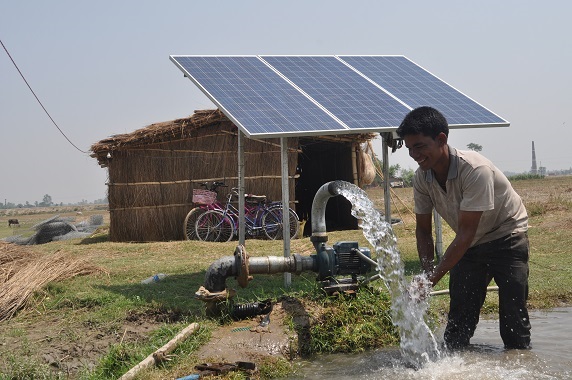KATHMANDU: Rural areas of Nepal are affected by a poorly developed electricity grid. The simplest and most sustainable solution: generating power from water and sunlight.
The landscape of the Himalayas poses a particular challenge for Nepal when it comes to supplying electricity. Linking up to the grid is especially difficult in remote parts of the country.
Renewable energy offers a solution, as sunlight and water are abundant. Thanks to solar power plants and hydropower plants, thousands of people in Nepal now have access to a reliable and sustainable power supply for the first time.
In this mountainous territory it is particularly important that these systems work without being connected to the central grid.
Manoj Thakur was among those previously affected by frequent power cuts. After many years spent in Kuwait as a migrant worker, he returned to Nepal to set up his own hairdressing business in his home district of Ilam, in the most eastern part of the country.
Power failures interrupted his work several times a day. The solution? A solar installation on the roof of his salon. To set this up, Thakur had access to a credit fund for renewable energy and advice from experts. ‘I used to worry that I’d have to give up my business. I’m no longer worried now.
I can live of my earnings,’ he says. The reliable power supply was put in place as part of a project financed by the German Development Ministry (BMZ). The Deutsche Gesellschaft für Internationale Zusammenarbeit (GIZ) GmbH is implementing the project in cooperation the Nepalese Government.
Manoj Thakur’s hairdressing salon is not a one-off: thanks to the project’s work, so far more than 140,000 people in Nepal have now reliable access to sustainable electricity.
This benefits public institutions such as hospitals, as well as private households. Interconnecting the systems within isolated power networks, known as mini-grids, provides a reliable power supply that is not reliant on the public grid. The project not only solves existential problems, it also helps to mitigate climate change, saving more than seven tons of CO2 every year.
(with inputs from Giz.de)









Comment